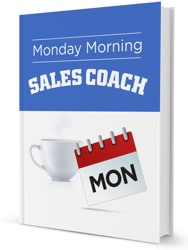Peak at the Right Time
Problem: Cal was a copier salesperson. One day in sales training class he lamented about his inability to get a prospect to make a decision on the proposal he had given for their copier business. He had provided some relatively attractive incentives to encourage his prospect to accept the proposal now, but couldn’t get the prospect to move. Upon questioning, it came out that the prospect’s current copier lease was not up for another 8 months. Cal’s incentives were intended to raise the urgency of the situation so the prospect would make an early decision.
Analysis: Clearly Cal’s timing was off. He needed the sale this month to make his quota, but his prospect didn’t need to make a copier decision this month…he still had 8 months to do something. There wasn’t any urgency.
I’m reminded of a track and field athlete who follows a training regimen designed to enable him to peak at the moment of the big race. He’s knows it’s very difficult to maintain optimum performance level for a long period of time, so he tries to reach his peak performance at the very moment the race is to take place. He knows it’s folly to peak too soon, and too late as well. For this athlete, timing is critical.
In sales, we are problem solvers. And the problems our prospects have generally fall into one of two categories: fix it or forget it. Both categories have two elements: severity and timing, and the timing is often the key. If finding a solution to a problem can be postponed without severe consequences, chances are its priority will be low. That was the case with Cal’s prospect.
Prescription: Timing is important. You must understand the prospect’s buying process, his time frame for making a decision, and when he needs to implement the solution. If you engage the prospect too soon, you don’t have his full attention. The problem is not in the here and now; it’s somewhere down the road and he figures his time is better spent dealing with today’s problems, rather than working on things that can be postponed. And if you wait too long…well, you’ve probably missed the opportunity entirely and handed the business to your competitor.
Always ask these three questions:
- “When do you need to make a decision (or implement a solution)?”
- “Why is that date important?”
- “What happens if you miss that date?”
Having answers to these three questions will help you understand their timing perfectly, so you can deliver your proposal at the right time.


